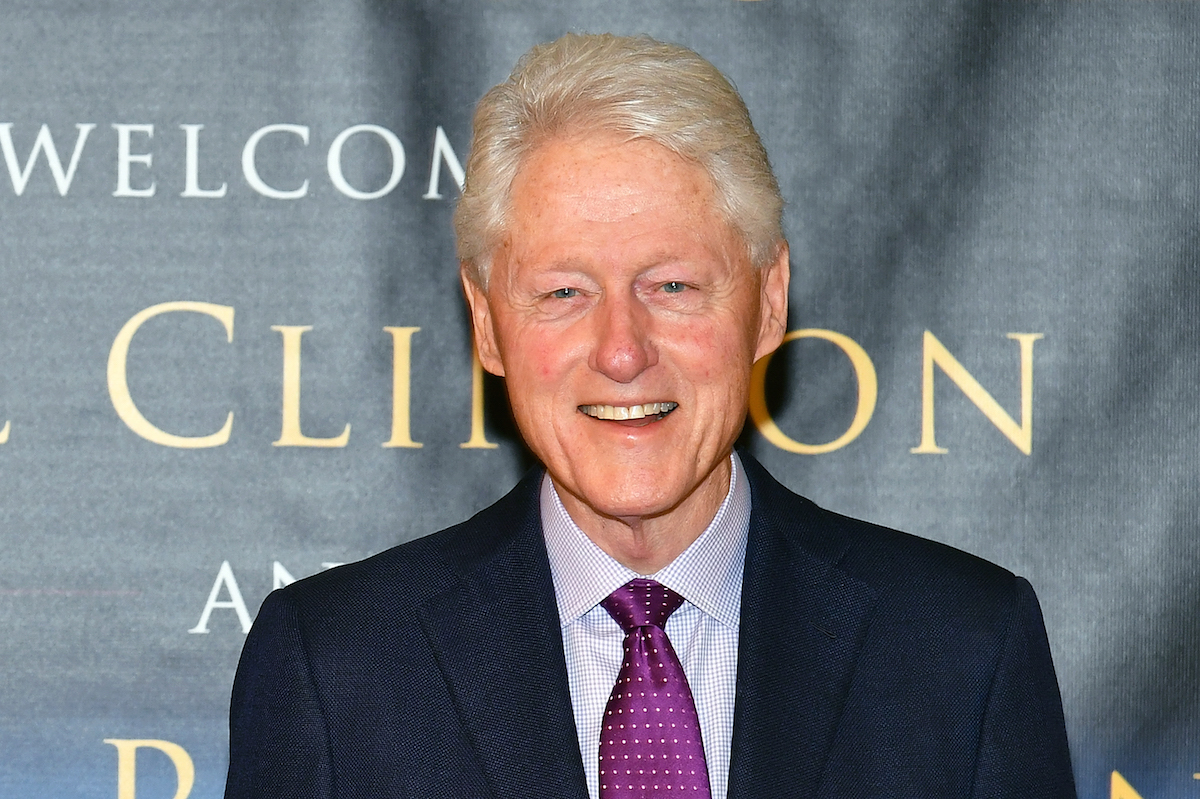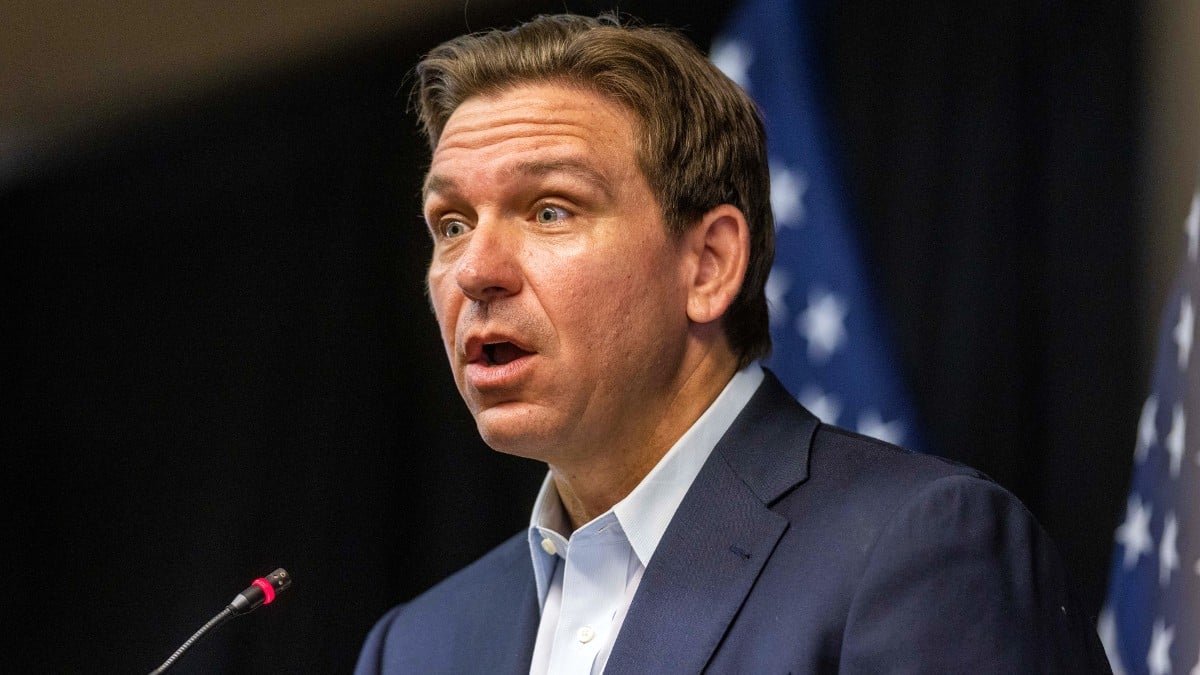Bill Clinton has been making the promotional rounds for a novel he wrote with James Patterson, and things haven’t been going very well. You would think that any celebrity or public figure these days would be prepared to answer questions about the #MeToo movement, especially one who has himself been at the center of a sexual misconduct scandal. But Clinton has been digging himself into a hole with his answers to those questions, and it doesn’t look like he’s planning to put down the shovel anytime soon.
Last week, in an interview with the Today show, Clinton was asked whether, if he were president now, and going through the events of his impeachment now, if he thinks he would act differently, in light of the #MeToo movement’s impact on issues of workplace sexual misconduct. He said he wouldn’t, and that he thought he “did the right thing” at the time.
Watch part one of @craigmelvin‘s interview with Bill Clinton and James Patterson pic.twitter.com/UC8KAQw8Ge
— TODAY (@TODAYshow) June 4, 2018
Clinton does say that he “felt terrible” about the way Monica Lewinsky was dragged into the media’s spotlight during the investigation of their affair, but he also falsely claims that he apologized to her (he later clarifies that he made a public apology “to everybody in the world”) and he digs his heels in with defensive deflection. Sure, he felt bad for Lewinsky, but, as he puts it, “nobody believes I got out of that for free,” citing his massive (and possibly massively exaggerated) debt upon leaving the White House.
That may be true, but he managed to have a legacy beyond that public scandal. His name wasn’t made into a punchline for two decades. But rather than address the fact that his behavior caused Monica Lewinsky to be treated atrociously, and that he left her to fend entirely for herself, he provides examples of how great he’s been to other women, how many jobs he’s provided to women, how much respect he has for them. Which is great and all, but it doesn’t give him room to use those women as a shield against the reality of Lewinsky’s experiences. He berates interviewer Craig Melvin (who, to his credit, pushes Clinton hard on these questions) and presumably the larger media for ignoring one side of the story (his), but in his defensiveness, he’s refusing to acknowledge hers.
The next day, Clinton and Patterson appeared on The Late Show and Stephen Colbert offered Clinton a “do-over” on his previous response to questions about Monica Lewinsky and the #MeToo lens. His response was clearly the result of some PR damage control, and yet still not too great. First off, he blamed the editing of the interview, which is a cheap cop-out when there was plenty left intact for us to get a clear picture of his message.
TONIGHT: Stephen offers @BillClinton the opportunity for a do-over regarding a question he was asked in an interview earlier this week. #LSSC #BillClinton pic.twitter.com/vgHSWOpY6N
— The Late Show (@colbertlateshow) June 5, 2018
“It wasn’t my finest hour,” he said, speaking of the events around his affair and impeachment, “but the important thing is, that was a very painful thing that happened 20 years ago and I apologized to my family, to Monica Lewinsky and her family, and to the American people. I meant it then and I meant it now. I’ve had to live with the consequences every day since.”
Again, he apologized publically to Lewinsky, never making a direct private apology. It’s fine for him to talk about how difficult that experience was for him. But the entire point of asking him to look at those past experiences through the current #MeToo lens is to shine light on how different and potentially how much worse it was for Lewinsky. To look at how women are victim- and slut-shamed for being on the low end of a huge power imbalance, and how he contributed to her public embarrassment. That’s what he refuses to do.
And he just keeps going. In a new interview with PBS, he was asked whether he thought social norms have changed and whether what happened with him was more “serious” than what happened with now-former Senator Al Franken, who resigned after being accused of assaulting and otherwise acting inappropriately toward a fellow USO participant, Leeann Tweeden.
Clinton’s response was … weird. “In general,” he said, “I think it’s a good thing, yes. I think it’s a good thing that we should all have higher standards. I think the norms have really changed in terms of, what you can do to somebody against their will, how much you can crowd their space, make them miserable at work.”
“You don’t have to physically assault somebody to make them, you know, uncomfortable at work or at home or in their other–just walking around. That, I think, is good.”
Muddling through that inarticulate bit about changing degrees of “what you can do to somebody against their will,” we can say that yes, it is good that people are realizing physical assault isn’t the only issue worth paying attention to. I’m glad Clinton said that.
Then he kept talking.
“I’ll be honest,” he continued, “the Franken case, for me, was a difficult case. There may be things I don’t know. But I–maybe I’m just an old-fashioned person, but it seemed to me that there were 29 women on Saturday Night Live that put out a statement for him, and that the first and most fantastic story was called, I believe, into question.”
Bill Clinton strongly suggests Al Franken was treated unjustly – says some other awkward and weird things about “what you can do to someone against their will” – concludes: “maybe I’m just an old-fashioned person” pic.twitter.com/QMlrYfO5sz
— Glenn Greenwald (@ggreenwald) June 11, 2018
Once again, for those in the back who apparently haven’t heard this message yet, if 29 women love and support a man, that is no indication whatsoever of how he treated the 30th. Just because Al Franken–or any man–didn’t act inappropriately with every woman, that does not serve to discredit another woman’s story. To think otherwise is not just “old-fashioned,” it’s completely obtuse.
Clinton says it’s “too late to wade into it now,” but he also criticizes the removal (or, in this case, resignation) of an elected representative, saying it’s “a grievous thing to take away from the people a decision they have made, especially when there is an election coming up again.” It’s okay to mourn the loss of Al Franken the politician, who did great work, while still wanting Franken the man to be held accountable for his actions. But finding ways to justify those actions because there’s an election on the horizon exemplifies the stance Clinton has taken throughout all of these interviews. Which is, in essence, “I support women, I support the #MeToo movement, but only when it costs me nothing.”
All of these interviews are incredibly disappointing. To be honest, the only thing that makes them worth watching is the schadenfreude of Patterson have to sit through them. He really lost his patience at the end of the Today interview, and came off like a total tool, making it clear he doesn’t see the importance of having this conversation in the first place. So I do enjoy watching him mope.
(image: Slaven Vlasic/Getty Images)
Want more stories like this? Become a subscriber and support the site!
—The Mary Sue has a strict comment policy that forbids, but is not limited to, personal insults toward anyone, hate speech, and trolling.—










Published: Jun 12, 2018 10:28 PM UTC